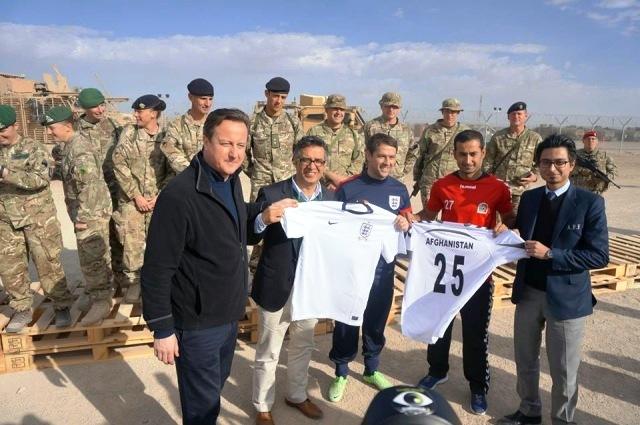KABUL had been accomplished and it was time for troops to come home.
During the pre-Christmas visit to Camp Bastion in Helmand, Cameron insisted that no UK combat troops would remain in Afghanistan by the end of next year, even if there was a rise in the insurgency.
He said Britain had more than played its part in Afghanistan. Asked if the troops come home with their “mission accomplished”, the prime minister replied: “Yes, I think, they do. I think they can come home with their heads high.”
Around 5,200 British troops are currently based in Afghanistan, down from 9,000 at the start of the year. There have been 446 British military deaths in the country.
“The timetable for the withdrawal of British troops is a plan that we will stick to,” he told Sky News. “I said, back in 2010, that after the end of 2014 there would not be British troops in a combat role and we will stick to that.
“We are not going to abandon this country. We are going to go on funding the Afghan National Army and police into the future.
“We will have a development programme into the future and, of course, we are providing what the president of Afghanistan asked me for, which is an officer training academy in Kabul which will help provide the backbone of the Afghan National Army for the future. “So, we have more than played our part in helping to rebuild this country and making it safe.
Cameron told reporters not to read anything into the fact that he had not visited President Hamid Karzai in Kabul during the trip. He insisted the bilateral security agreement would go ahead.
“Well, I’m confident that this agreement will be signed,” he said. “It’s in Afghanistan’s interest to have a basic agreement so that American troops and others can help with basic security all the way up to the transition and provide some support in the future.
“That’s clearly in Afghanistan’s interest, that’s in America and NATO’s interest, and so I’m confident that after some discussions an agreement will be signed.”
The prime minister also announced that the Football Association and the Premier League had joined forces to help boost the growth and development of Afghan football.
The partnership will lend support to football in the country ranging from grassroots level to the top flight and the national team.
“We often think of sport as just about a competition where you are either a winner or a loser, but it also has an amazing power to bring people together and unite communities for the benefit of all involved,” said Cameron. “That’s exactly what is happening with football in Afghanistan.”
ma/mud








GET IN TOUCH
NEWSLETTER
SUGGEST A STORY
PAJHWOK MOBILE APP